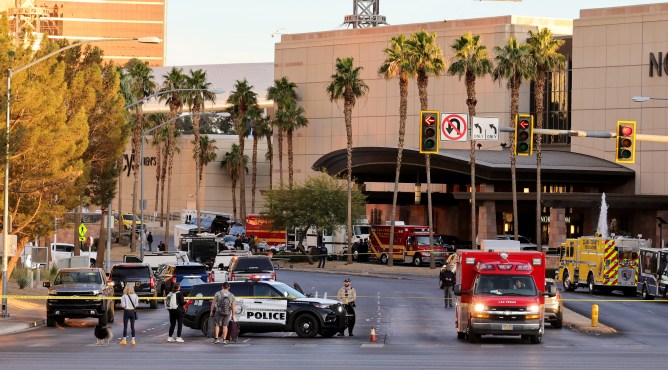Two individuals rented cars from Turo, a peer-to-peer car-sharing platform, and used them to commit acts of violence earlier this week. The first incident involved a military veteran driving a Ford F-150 Lightning into a crowd of people in New Orleans, resulting in at least 15 fatalities. The second incident occurred in Las Vegas, where an active-duty Green Beret rented a Tesla Cybertruck, parked it in front of the Trump International Hotel, and allegedly blew it up. The driver died by suicide.
CEO’s Response
On Friday, Turo’s chief executive, Andre Haddad, released a statement expressing his outrage over the misuse of their platform. He noted that Turo is working "around the clock" to determine how these individuals were able to abuse their system. However, this raises an important question: how could Turo or any similar platform have prevented this?
Turo’s Background Check Process
Turo has been described as like Airbnb for cars, a platform where vehicle owners can rent out their vehicles for extra money or even as a full-time business. Many hosts on the platform rent out three or more vehicles at a time. To mitigate potential risks, Turo claims to use a "proprietary multi-layer, data-science-based trust and safety algorithm" called the Turo Risk Score. This algorithm is built using 50 internal and external data sources.
However, it’s unclear what this means in practical terms. Does Turo perform normal criminal background checks? The company has not responded to TechCrunch’s request for clarification. Over the years, some bad actors have managed to slip through the cracks, embroiling Turo in controversy after cars on its platform have been used for human and drug trafficking.
Hosts’ Concerns
People who claim to be hosts regularly post on the Turo subreddit page about their vehicles being rented out to individuals with criminal histories. Despite these concerns, Turo’s background check process has failed to catch perpetrators like the two individuals involved in this week’s incidents.
Perpetrators’ Backgrounds
According to Haddad, both perpetrators had valid driver’s licenses and clean criminal backgrounds. They were also decorated U.S. military servicemembers. "They could have boarded any plane, checked into any hotel, or rented a car or truck from any traditional vehicle rental chain," Haddad said.
Even if Turo’s background checks were foolproof, the perpetrators would still have found ways to commit their crimes. As Haddad noted, these individuals were unlikely to be flagged by law enforcement.
Turo’s Statistics
Turo claims to have facilitated 27 million trips over 12 years, with fewer than 0.10% resulting in serious incidents like vehicle theft. While this may seem like a low percentage, it raises concerns about the effectiveness of Turo’s safety measures.
What’s Next for Turo?
Haddad noted that aside from investing in improving its risk score algorithm, Turo has assembled a team of former law enforcement professionals to help assess future risks. The company is also consulting with national security and counterterrorism experts to learn more about how it can improve its safety measures.
Challenges Ahead
While Turo’s efforts to improve its safety measures are commendable, there are challenges ahead. As the popularity of car-sharing platforms continues to grow, so too will the potential for misuse. It remains to be seen whether Turo and similar companies can effectively balance user convenience with safety concerns.
Lessons Learned
The incidents involving Turo rentals highlight the importance of effective background check processes and risk assessment algorithms. Companies like Turo must prioritize user safety while also protecting their own interests. The industry as a whole must learn from these tragedies to prevent future occurrences.
Related News
- Trump’s DOT pick wants EV owners to pay to use roads
- Accel doubles down on Sarla Aviation’s ambition to develop electric air taxis in India



